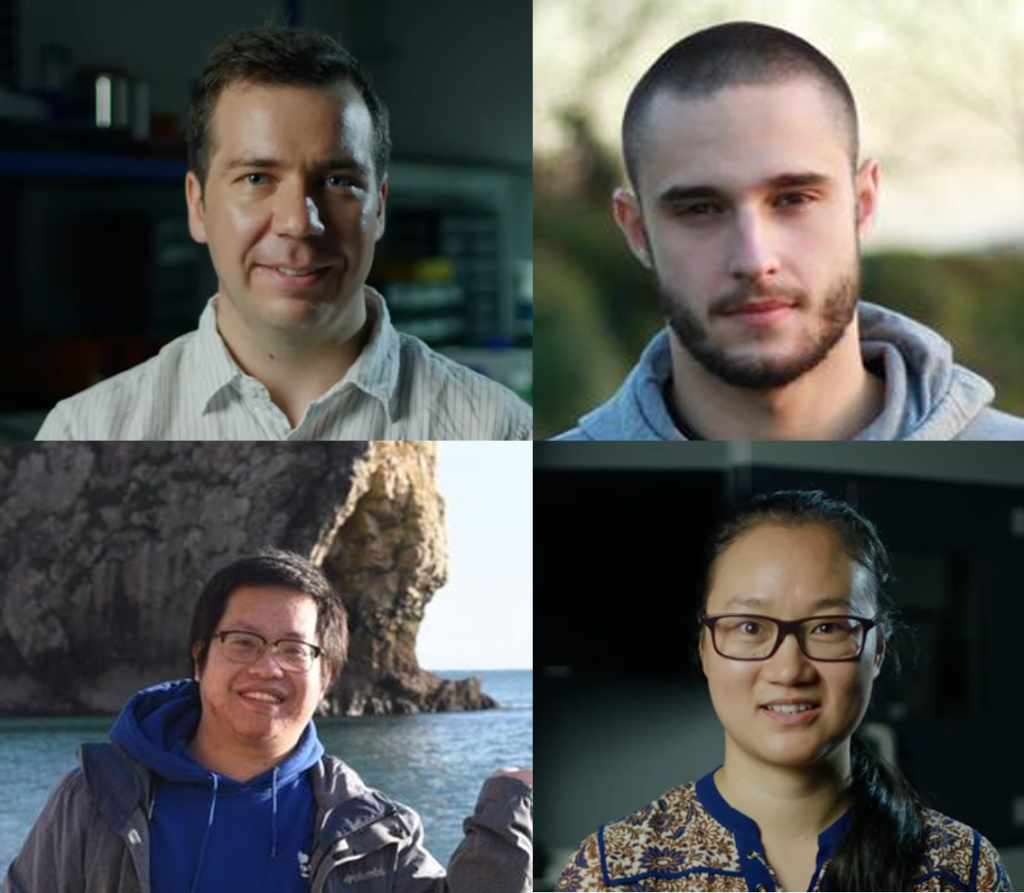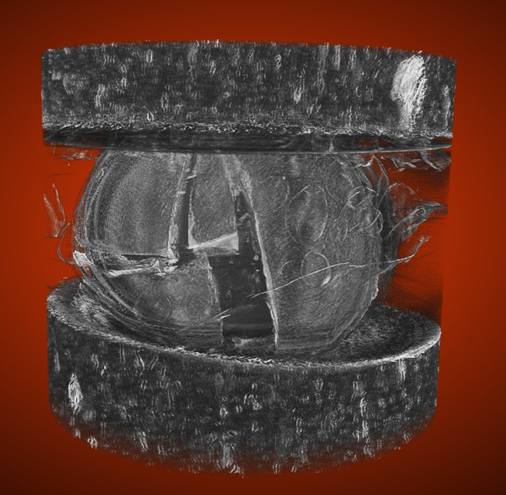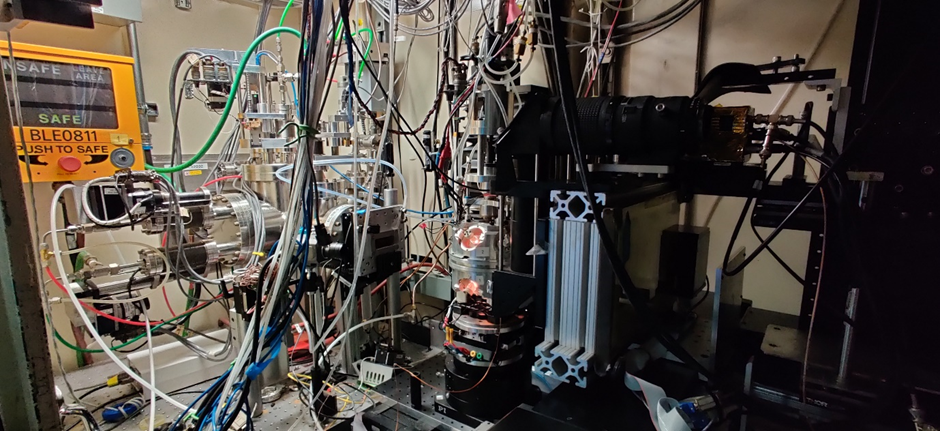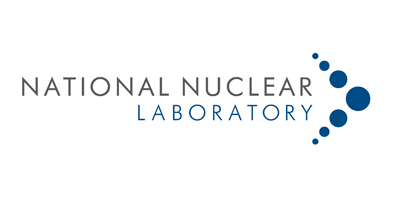Transatlantic TRISO fuels: Collaboration in the COVID-19 era
Following an unconventional remote experiment, Alex Leide from the University of Bristol reflects on the value of international partnership and flexible thinking.
Since April 2020, our team at Bristol has been planning an experiment at the Advanced Light Source (ALS) at Lawrence Berkeley National Lab (LBNL) in California. This lab is based around a synchrotron, a type of particle accelerator which creates very bright X-rays that scientists can use for various exciting experiments. In our case, we would be doing X-ray tomography, which is similar to a hospital CT scan. Basically, you rotate the sample and collect around 2000 X-rays at different angles, then reconstruct these into a 3D model of your sample. What makes this experiment special is that we would do this while the sample is heated up to nearly 1000°C at the same time as crushing it.

The samples I am studying through AFCP are a type of nuclear fuel called TRISO (TRIstructural ISOtropic). These precious samples were provided to us by USNC (Ultra Safe Nuclear Corporation). To the eye, these resemble poppy seeds. However, they are complexly engineered objects with decades of development. At the core is a sphere of nuclear fuel, which is coated by several ceramic layers to make a strong, safe nuclear fuel which cannot melt. For this experiment, we were trying to find out exactly how strong they are – and how they break – by using the X-ray scans.

Rerouting research plans
Within AFCP’s coated particle fuel team, the University of Manchester is developing coating processes, Imperial College London is doing computer modelling and here in Bristol we are completing mechanical testing and characterisation to understand how strong TRISO particles are, led by Dr Dong (Lilly) Liu. Alongside AFCP’s academic projects, the UK National Nuclear Laboratory (NNL) is leading the programme and developing pilot scale manufacturing processes for fuel kernels while coordinating our efforts to enable closer collaboration between project partners. I have been working on TRISO fuel since April 2020 and have recently been joined by Ms Haiqi Huang a new PhD researcher in Bristol.
Although AFCP is a UK programme, academic research requires international collaboration – we are working together and using facilities around the world for our research. We were awarded two days to do experiments at ALS, trying to fit in experiments on crushing TRISO for my AFCP work alongside high temperature bending experiments for Paul Forna-Kreutzer and Guanjie Yuan, PhD students in Bristol.

Normally these two days of hard experiments would coincide with a fun trip to California! Unfortunately, this past year the world was turned upside down by the Coronavirus pandemic, so we needed to adapt our plans to work around this.
The original plan was that we would fly to California in September 2020 and do these experiments in person, working through the night to get everything done during our two-day allocation. We had hoped that things would be more normal by September, but as it became clearer that this would not be the case, we began to fear that these exciting experiments would not go ahead.
From Bristol to Berkeley
The scientists at ALS arranged for experiments to be done without us needing to be there, using remote control software to control the equipment, while someone on-site would physically set up the machine. Arranging all this took a while, so it was late November when the experiments finally took place.
Jon Ell from Prof. Robert Ritchie’s LBNL research team, who is experienced with this experimental set up, worked locally at the light source with beamline scientists Dr Harold Barnard and Dr Dula Parkinson on call to help Jon out if things went wrong. We posted our samples to the USA ahead of the experiments, and I was very relieved when the parcel tracking showed they had arrived safely!
With our samples on hand, Jon worked extra-long days from 9am to midnight to help us make the most of our beamtime. In Bristol, Guanjie, Paul and I worked through the night from 5pm to the next morning because of the time difference. On my end, this was fuelled by lots of snacks and coffee!

Adaptive innovation in the new normal
When you’re using this sort of complex equipment, something always goes wrong. There were some delays while we solved problems, but over the two days we generated lots of high-quality data which will take months to process and analyse.
“We have adapted to continue world-class international research collaborations despite coronavirus. The adaptations made the experiment challenging, but we were still able to do it by working closer with our colleagues in the USA.”
Adapting to these circumstances and still being able to get lots of work done was challenging, but we made it work with strong collaboration and teamwork across time zones and thousands of miles. Modifying how we do these international experiments has enabled us to keep working through the “new normal” that COVID-19 has presented. This keeps us moving towards the goals of AFCP and our incremental contribution to Net Zero through advanced fuel innovation.
Of course, it was disappointing not to travel to California to do these experiments and take a short break to explore the area, but we have to adapt and keep working. Hopefully I will be able to go out there in person in the not-too-distant future!
Alex Leide is a Postdoctoral Research Associate (PDRA) at the School of Physics, University of Bristol. Get in touch via email (alex.leide@bristol.ac.uk) or by following him on Twitter (@alex_leide). You can also learn more about his team’s advanced materials research, including their work in TRISO fuels, on their group’s website.
AFCP is part of the Department for Business, Energy and Industrial Strategy’s (BEIS) £505m Energy Innovation Programme.
